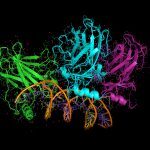Présentation
Statistical methodology is key for quantitative proteomics, as it helps reduce bias and inefficiencies, distinguish the systematic variation from random artifacts, and maximize the reproducibility of the results. This talk will overview the statistical methodology implemented in MSstats, an open-source R package for statistical relative quantification of proteins and peptides. MSstats supports experiments with complex designs, such as comparisons of multiple groups or time course comparisons. It handles quantitative shotgun DDA (data-dependent acquisition) experiments, targeted SRM (selected reaction monitoring), and SWATH/DIA (data independent acquisition) experiments. It can be used in conjunction with label-free experimental workflows, or with workflows that utilize stable isotope reference proteins or peptides. MSstats contains functionalities for data processing, model-based statistical analysis (including testing proteins and peptides for differential abundance, or estimating protein abundance on a relative scale), and model-based calculation of a sample size for a future experiment. It also contains functionalities for systems suitability and statistical process control, and for quantification of figures of merit (such as limit of detection) of mass spectrometric assays. MSstats is available stand-alone or via graphical user interface as an external tool in the software framework Skyline. It can be interfaced with numerous spectral processing tools, such as MaxQuant.
Localisation
Bâtiment: Lwoff
Adresse: Institut Pasteur, Paris, France

